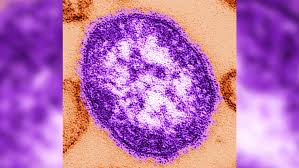Kenvue collaborates with Indian Academy of Pediatrics (IAP) Neonatology Chapter to launch recommendations for Skincare Protocols for Hospitalized Neonates
Kenvue, the world’s largest pure-play consumer health company by revenue, released its latest consensus on ‘Recommendations for Neonatal Skincare Protocols for Hospitalized Neonate’ endorsed by IAP Neonatology Chapter. The comprehensive recommendations were officially unveiled at

Kenvue, the world’s largest pure-play consumer health company by revenue, released its latest consensus on ‘Recommendations for Neonatal Skincare Protocols for Hospitalized Neonate’ endorsed by IAP Neonatology Chapter. The comprehensive recommendations were officially unveiled at PEDICON 2024 which is 61st National Conference of the Indian Academy of Paediatrics at the IAP Neonatology Chapter, a prestigious medical conference for paediatricians and neonatologists. The recommendations aim to provide neonatologists in India with evidence-based clinical practice guidelines for neonatal skin care in hospitalised neonates and implement skincare protocols grounded in scientific principles and empirical evidence.
Neonates in NICU at a high risk of skin barrier impairment due to intrinsic and extrinsic factors including infection due to thermal imbalance, fluid and electrolyte loss, skin injury, and sepsis leading to increased mortality and morbidity. These complications, however, can be reduced if NICUs have established evidence-based skincare protocols and perform skin assessments as an integral part of management.
Today, there are multiple approaches to quality of neonatal skincare practices in NICUs that impact neonatal outcomes including survival. The consensus intends to bridge this gap by providing clinical recommendations on neonatal skincare in hospitalized neonates.
The recommendations have been built by adopting the Delphi methodology which incorporate views from a scientific advisory board comprising of eminent pediatricans and neonatologists across specialities including Dr. R Kishore Kumar, Dr. Arun Inamadar, Dr. Alok Bhandari, Dr. Rajesh Kumar, Dr. Kheya Uttam Ghosh, Dr. J K Mittal and Dr. Pradeep Suryawanshi, Dr. Sanjay Wazir and Dr. Satyen Hemrajani and moderated by Dr. Naveen Bajaj, Chairperson, IAP Neonatology Chapter.
The recommendations provide practical guidance on neonatal skin care for babies in Neonatal Intensive Care Units (NICUs) including the need for neonatal skin assessment for early identification and treatment of the skin problems through screening tools and risk assessment frameworks, importance of hygiene in NICU babies through stringent hand hygiene practices, cleansing for newborns to reduce infections, when and how to bathe the baby, cleansing with appropriately formulated wipes with mild cleansing agents. Additionally, the paper also covers aspects related to usage of emollients in preventing transepidermal water loss (TEWL), umbilical cord care, perineal care, Neurodevelopmental Care and skincare regimen and parent Education during discharge.
Manish Anandani, Managing Director, Kenvue India* said, “When it comes to newborn care, there exists broad variations in routine skin care practices in NICUs in India. With our latest recommendations we aim to ensure that every newborn not only survives but thrives by providing healthcare professionals a comprehensive guide of standardised evidence-based skincare protocols. We are proud to release these recommendations in partnership with IAP Neonatology Chapter to significantly improve health of newborns.”
Dr. Naveen Bajaj, Chairperson, IAP Neonatology Chapter said, “Comprehensive care of neonates admitted in NICU is the key for their survival and early discharge. Skin care of these newborn babies forms an essential aspect of their overall management plan, and is of critical importance in extreme preterm babies, these evidence based guidelines will help in streamlining the practice of neonatal skin care, helping to contribute in improved overall neonatal morbidity and mortality, especially the extreme preterm newborns.”






